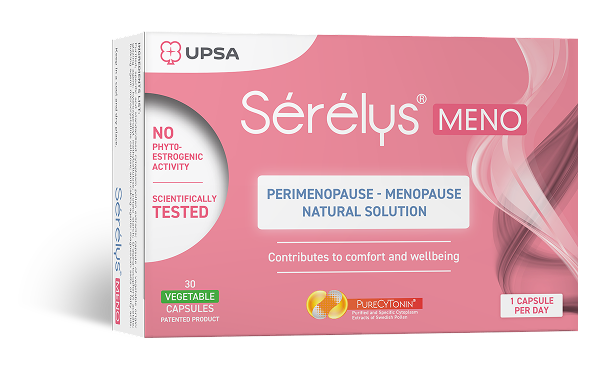
The top signs of perimenopause
Identifying and handling perimenopause symptoms
It’s hard to talk about women’s health without mentioning menopause. Experienced by women typically entering their 50’s, menopause marks the end of reproduction, as the ovaries stop producing eggs and hormone levels fall. But natural menopause doesn’t typically happen all at once, it’s a gradual process preceded by something known as perimenopause. Not as commonly talked about, women may be uncertain of the signs of perimenopause or know whether or not they are experiencing perimenopause symptoms.
Also known as the ‘menopausal transition’, perimenopause symptoms can begin at a variety of ages for women. Some women notice signs of perimenopause as early as their mid-30’s, although most will begin to experience perimenopause symptoms sometime in their 40’s.
A key factor in menopause is the decline of hormones, especially oestrogen. One of the signs of perimenopause is hormonal fluctuations. This can cause changes to a woman’s cycle resulting in heavier or lighter flow, or their period lasting for a different length of time than it would normally. The end of perimenopause is marked by 12 consecutive months without a menstrual period, which signals a woman reaching menopause.
What are some perimenopause symptoms?
Although there are many signs of perimenopause that are specific to that part of a woman’s life, you may also experience menopause-like symptoms including hot flushes, insomnia and vaginal dryness. Here are some perimenopause symptoms to look out for:
Irregular periods
This is the most common sign of perimenopause. It’s always worth making note of changes in your cycle, as you may skip some periods or start having them more frequently. If you have a change of 7 days or more in the length of your period, this could be a sign of early perimenopause. If you go 60 days or more between periods, you’re more likely to be in late perimenopause.
Hot flushes
One of the signs of perimenopause similar to menopause, this symptom is also very common. You may feel a sudden temperature change in your face and chest and you may find yourself getting dizzy.
Insomnia
Another of the perimenopause symptoms that can also occur in menopause, sleepless nights can be a result of hot flushes during the night. Also known as night sweats, you may find yourself waking up constantly during the night, causing fatigue the following day.
Mood changes
Also a common perimenopause symptom, you may experience changes in mood particularly if you are experiencing hot flushes and sleepless nights. However this can also be caused by the hormonal imbalances you may be experiencing.
Vaginal Dryness
Many perimenopause symptoms are caused by the decreased oestrogen, including changes to elasticity and lubrication of vaginal tissues. This can lead to dryness, irritation and discomfort, which in turn can make sex painful or uncomfortable. Naturally, this may change your sex drive and decrease your desire to have sex at all during this period.
 Other signs of perimenopause include
Other signs of perimenopause include
-
Heart palpitations
-
Headaches and migraines
-
Joint pain and muscle aches
-
Weight gain
-
Dry or itchy skin
-
Recurrent UTIs
-
Bladder problems
You may experience all these or none at all! They may last for years or might come and go. Perimenopause is different for everyone.
What you can do about perimenopause symptoms
There are lots of things you can do to support yourself and manage perimenopause symptoms. Putting these lifestyle changes in place early will also help you out in the future when you enter menopause. Here are some tips for managing the signs of perimenopause:
-
Keep to a regular sleep routine
-
Eat a healthy, balanced diet, including plenty of colourful fruits and vegetables
-
Speak about what you’re doing through to those around you and get support
-
Ensure you have an adequate calcium intake, you may need to take supplements in addition to a calcium-rich diet
-
Do weight-bearing exercise regularly to keep your bones strong
-
Seek medical advice if you feel you need further support managing your perimenopause symptoms
 Although these are all great ways to ease your perimenopause symptoms, often this may not be enough. It is extremely common for women to seek extra support and typically doctors will prescribe hormone replacement therapy (HRT), to balance declining hormones. However, this is not the right solution for all women and it’s important to know there are other options available to you!
Although these are all great ways to ease your perimenopause symptoms, often this may not be enough. It is extremely common for women to seek extra support and typically doctors will prescribe hormone replacement therapy (HRT), to balance declining hormones. However, this is not the right solution for all women and it’s important to know there are other options available to you!
Sérélys® Meno is an effective natural solution formulated to help ease perimenopause symptoms in women. Women in a clinical trial using Sérélys® Meno found this scientifically proven supplement to be highly effective at managing symptoms of both perimenopause and menopause.
85.5% of women in this trial experienced fewer hot flushes, while 91% of women found their hot flushes to be less intense and 60.8% of women found themselves feeling less tired. * Lachowsky M. et al., Evaluation of the quality and tolerance of Serelys ® in women during perimenopause and menopause. Genesis, 2015. Volume 183, 10-13.
If your perimenopause symptoms are causing you discomfort, Sérélys® Meno may be the right choice for you. For optimal results, take Sérélys once a day, in the morning or evening. Maximum efficacy is reached after two months. For lasting effects, continue taking Sérélys for as long as you feel the need.




